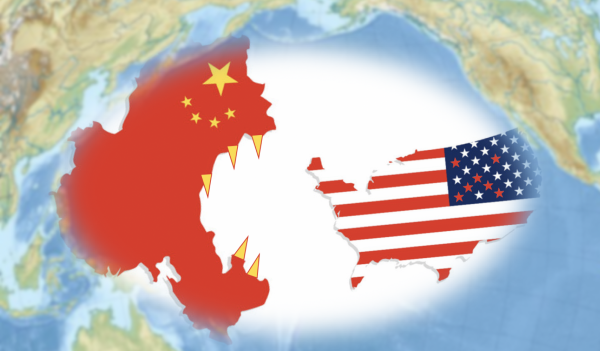Building state capacity isn’t an ism.
Rubio Takes the Lead

But the right’s full reckoning on economics awaits.
In his response to Marco Rubio’s address at the National Defense University, Walter M. Hudson commends the Senator as “the sole major political figure, from any party,” to publicly address the core issues surrounding our need for a new industrial policy—“not only the great power competition with China, but also the lack of sufficient investment in American research and development, the growing wealth inequity in the United States, the loss of American manufacturing, and the fragility of many key U.S. supply chains.”
“The end of the Cold War and the creation of the ‘Washington Consensus’ seemed only to confirm that America’s economic supremacy would remain unchallenged. But that consensus is no longer nearly as powerful or persuasive as it once was,” Hudson writes. “The new paradigm is not and should not be ‘Cold War redux.’”
Hudson is right: Sen. Rubio is leading where others are not, making way for a top-to-bottom reassessment fitted squarely to our digital world. Such trailblazing always opens up questions along with new vistas. In their responses to Rubio’s speech, Richard Reinsch and David P. Goldman raise some sympathetic qualifications.
Reinsch warns that limiting our industrial diagnosis to the malignancy of China is inadequate to restoring America’s fortunes. “If only the causality of deaths of despair, male joblessness, marriage decline, and births outside of marriage were that linear—and not the result of numerous policy, cultural, religious, and social feedback loops that stretch back for decades!” China, too, has its own severe structural problems. Falling into reactive policy driven by Beijing’s choices won’t keep America responsive to China’s internal weaknesses or our own.
Goldman, meanwhile, warns that “trade war is not enough: the United States requires a concerted national effort to assert technological leadership and rebuild its manufacturing base.” Sen. Rubio, says Goldman, wisely notes that “the market will always reach the most efficient economic outcome, but sometimes the most efficient outcome is at odds with the common good and the national interest.”
But who, Goldman asks, should be asked to bear the costs imposed by greater inefficiencies? And how long can they be carried forward before investors lose the long-term confidence in America’s economy that gives us our current strategic financial edge? Goldman proposes putting federal muscle behind our “decisive advantage” in “fostering innovation,” beginning with a crash program in telecommunications technology.
Matt Stoller notes that that America can and has succeeded with a variety of economic strategies: the notion of a one-size-fits-all libertarianism is a myth. And indeed, Stoller goes further than Rubio in insisting that “the market” itself has no meaning outside what policymakers choose to endorse and support: “We choose which kinds of business practices are legal and which ones aren’t, and always have.” Advocating a nuanced approach guided by practical wisdom rather than ideology, Zachary Graves sees value in Rubio’s efforts to make grappling with China a priority, but suggests that a more sophisticated approach to economic policy—especially as regards I.P.—is necessary.
Christopher Balding, meanwhile, cautions against unrealistic reforms based more on nostalgia than on America’s real interests: “Rather than protecting jobs that won’t come back,” he writes, “we must reinvent the American economy to help ensure our people can get back on track and get ahead.”
The terms of this crucial debate illustrate that what’s at stake goes well beyond this strategy or that. It implicates nothing less than how we understand the economy and economic matters writ large. At this level, Michael Lind frames the matter in a way the Right—and not just the Right—must respond to.
“The decision to observe when the market advances the common good shouldn’t just be limited to those instances in which it its determination runs contrary to our national defense,” Lind writes. Carving out a handful of exceptions to a “default” norm in favor of the “free market,” he argues, actually serves to reinforce the worship of the market. Instead of elevating this abstraction above real businesses, officials should recognize that “pro-enterprise” policy offers a more productive and prudent way forward.
Analysts and policymakers on the Right (and beyond) should ask: is Lind wrong? If not—if Lind is correct—Sen. Rubio is on the right track, whatever the specifics, and much of the old rhetoric and ideology of the Right needs to be jettisoned or refocused. If Lind is right, the class that ruled the roost of the pre-digital political economy must relinquish its grip on our destiny.
“We need to determine if we have the right configuration, the right national security architecture, and the right relationships between government and private entities to compete effectively in this new arena,” Professor Hudson counsels. Those hoping to navigate this challenge will need to furnish some direct answers to the questions Lind and others now raise.
The American Mind presents a range of perspectives. Views are writers’ own and do not necessarily represent those of The Claremont Institute.
The American Mind is a publication of the Claremont Institute, a non-profit 501(c)(3) organization, dedicated to restoring the principles of the American Founding to their rightful, preeminent authority in our national life. Interested in supporting our work? Gifts to the Claremont Institute are tax-deductible.
Don’t remake America: reinvent it.
Time is pressing to turn our tech Titanic around.
America thrives best free from market worship.
Actual policymakers have to do that.
The fix demands more than blame for Beijing.






